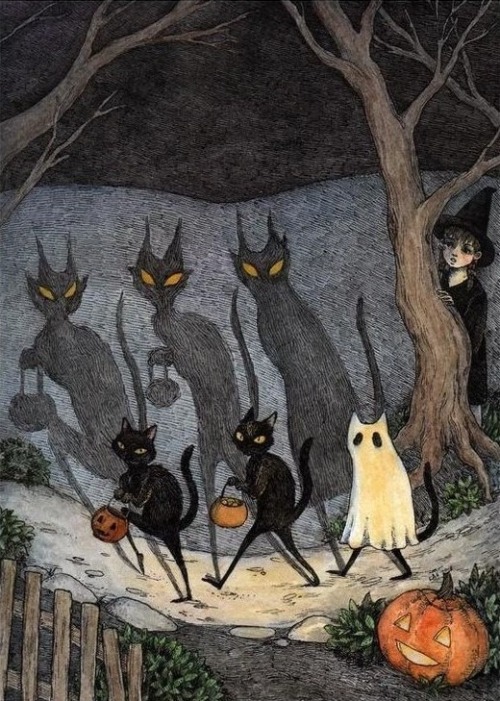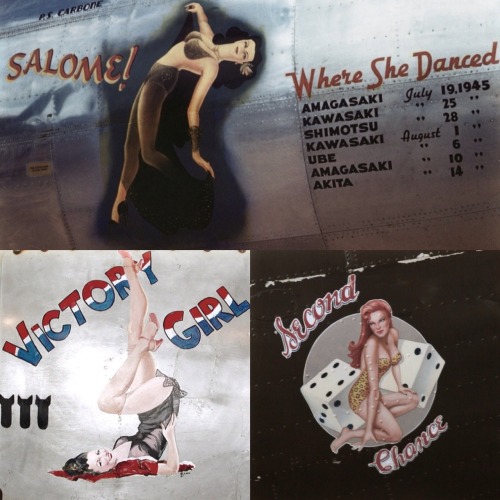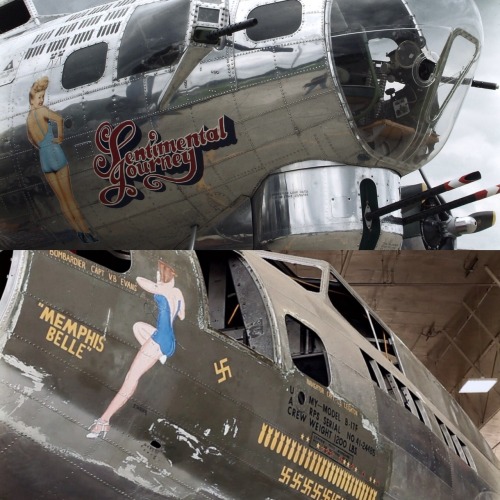Deep In The Swamps, Archaeologists Are Finding How Fugitive Slaves Kept Their Freedom
Deep in the Swamps, Archaeologists Are Finding How Fugitive Slaves Kept Their Freedom

The worse it gets, as I wade and stumble through the Great Dismal Swamp, the better I understand its history as a place of refuge. Each ripping thorn and sucking mudhole makes it clearer. It was the dense, tangled hostility of the swamp and its enormous size that enabled hundreds, and perhaps thousands, of escaped slaves to live here in freedom.
We don’t know much about them, but thanks to the archaeologist hacking through the mire ahead of me, we know they were out here, subsisting in hidden communities, and using almost nothing from the outside world until the 19th century. The Dismal Swamp covered great tracts of southeast Virginia and northeast North Carolina, and its vegetation was far too thick for horses or canoes. In the early 1600s, Native Americans fleeing the colonial frontier took refuge here, and they were soon joined by fugitive slaves, and probably some whites escaping indentured servitude or hiding from the law. From about 1680 to the Civil War, it appears that the swamp communities were dominated by Africans and African-Americans. Read more.
More Posts from Twiggietruth and Others
Rare first edition of ‘The Map that Changed the World’ unearthed

A rare early copy of William Smith’s 1815 Geological Map of England and Wales, previously thought lost, has been uncovered by Geological Society archivists. The new map has been digitised and made available online in time for the start of celebrations of the map’s 200th anniversary, beginning with an unveiling of a plaque at Smith’s former residence by Sir David Attenborough.
This was the first geological map of a nation ever produced, and shows the geological strata of England, Wales and part of Scotland. The newly discovered copy is thought to have been one of the first ten produced by William Smith (1769-1839), who went on to make an estimated 370 hand-coloured copies of the map in his lifetime. Read more.






JSTOR Articles on the History of Witchcraft, Witch Trials, and Folk Magic Beliefs
This is a partial of of articles on these subjects that can be found in the JSTOR archives. This is not exhaustive - this is just the portion I've saved for my own studies (I've read and referenced about a third of them so far) and I encourage readers and researchers to do their own digging. I recommend the articles by Ronald Hutton, Owen Davies, Mary Beth Norton, Malcolm Gaskill, Michael D. Bailey, and Willem de Blecourt as a place to start.
If you don't have personal access to JSTOR, you may be able to access the archive through your local library, university, museum, or historical society.
Full text list of titles below the cut:
'Hatcht up in Villanie and Witchcraft': Historical, Fiction, and Fantastical Recuperations of the Witch Child, by Chloe Buckley
'I Would Have Eaten You Too': Werewolf Legends in the Flemish, Dutch and German Area, by Willem de Blecourt
'The Divels Special Instruments': Women and Witchcraft before the Great Witch-hunt, by Karen Jones and Michael Zell
'The Root is Hidden and the Material Uncertain': The Challenges of Prosecuting Witchcraft in Early Modern Venice, by Jonathan Seitz
'Your Wife Will Be Your Biggest Accuser': Reinforcing Codes of Manhood at New England Witch Trials, by Richard Godbeer
A Family Matter: The CAse of a Witch Family in an 18th-Century Volhynian Town, by Kateryna Dysa
A Note on the Survival of Popular Christian Magic, by Peter Rushton
A Note on the Witch-Familiar in Seventeenth Century England, by F.H. Amphlett Micklewright
African Ideas of Witchcraft, by E.G. Parrinder
Aprodisiacs, Charms, and Philtres, by Eleanor Long
Charmers and Charming in England and Wales from the Eighteenth to the Twentieth Century, by Owen Davies
Charming Witches: The 'Old Religion' and the Pendle Trial, by Diane Purkiss
Demonology and Medicine in the Sixteenth and Seventeenth Centuries, by Sona Rosa Burstein
Denver Tries A Witch, by Margaret M. Oyler
Devil's Stones and Midnight Rites: Megaliths, Folklore, and Contemporary Pagan Witchcraft, by Ethan Doyle White
Edmund Jones and the Pwcca'r Trwyn, by Adam N. Coward
Essex County Witchcraft, by Mary Beth Norton
From Sorcery to Witchcraft: Clerical Conceptions of Magic in the Later Middle Ages, by Michael D. Bailey
German Witchcraft, by C. Grant Loomis
Getting of Elves: Healing, Witchcraft and Fairies in the Scottish Witchcraft Trials, by Alaric Hall
Ghost and Witch in the Sixteenth and Seventeenth Centuries, by Gillian Bennett
Ghosts in Mirrors: Reflections of the Self, by Elizabeth Tucker
Healing Charms in Use in England and Wales 1700-1950, by Owen Davies
How Pagan Were Medieval English Peasants?, by Ronald Hutton
Invisible Men: The Historian and the Male Witch, by Lara Apps and Andrew Gow
Johannes Junius: Bamberg's Famous Male Witch, by Lara Apps and Andrew Gow
Knots and Knot Lore, by Cyrus L. Day
Learned Credulity in Gianfrancesco Pico's Strix, by Walter Stephens
Literally Unthinkable: Demonological Descriptions of Male Witches, by Lara Apps and Andrew Gow
Magical Beliefs and Practices in Old Bulgaria, by Louis Petroff
Maleficent Witchcraft in Britian since 1900, by Thomas Waters
Masculinity and Male Witches in Old and New England, 1593-1680, by E.J. Kent
Methodism, the Clergy, and the Popular Belief in Witchcraft and Magic, by Owen Davies
Modern Pagan Festivals: A Study in the Nature of Tradition, by Ronald Hutton
Monstrous Theories: Werewolves and the Abuse of History, by Willem de Blecourt
Neapolitan Witchcraft, by J.B. Andrews and James G. Frazer
New England's Other Witch-Hunt: The Hartford Witch-Hunt of the 1660s and Changing Patterns in Witchcraft Prosecution, by Walter Woodward
Newspapers and the Popular Belief in Witchcraft and Magic in the Modern Period, by Owen Davies
Occult Influence, Free Will, and Medical Authority in the Old Bailey, circa 1860-1910, by Karl Bell
Paganism and Polemic: The Debate over the Origins of Modern Pagan Witchcraft, by Ronald Hutton
Plants, Livestock Losses and Witchcraft Accusations in Tudor and Stuart England, by Sally Hickey
Polychronican: Witchcraft History and Children, interpreting England's Biggest Witch Trial, 1612, by Robert Poole
Publishing for the Masses: Early Modern English Witchcraft Pamphlets, by Carla Suhr
Rethinking with Demons: The Campaign against Superstition in Late Medieval and Early Modern Europe from a Cognitive Perspective, by Andrew Keitt
Seasonal Festivity in Late Medieval England, Some Further Reflections, by Ronald Hutton
Secondary Targets: Male Witches on Trial, by Lara Apps and Andrew Gow
Some Notes on Modern Somerset Witch-Lore, by R.L. Tongue
Some Notes on the History and Practice of Witchcraft in the Eastern Counties, by L.F. Newman
Some Seventeenth-Century Books of Magic, by K.M. Briggs
Stones and Spirits, by Jane P. Davidson and Christopher John Duffin
Superstitions, Magic, and Witchcraft, by Jeffrey R. Watt
The 1850s Prosecution of Gerasim Fedotov for Witchcraft, by Christine D. Worobec
The Catholic Salem: How the Devil Destroyed a Saint's Parish (Mattaincourt, 1627-31), by William Monter
The Celtic Tarot and the Secret Tradition: A Study in Modern Legend Making, by Juliette Wood
The Cult of Seely Wights in Scotland, by Julian Goodare
The Decline of Magic: Challenge and Response in Early Enlightenment England, by Michael Hunter
The Devil-Worshippers at the Prom: Rumor-Panic as Therapeutic Magic, by Bill Ellis
The Devil's Pact: Diabolic Writing and Oral Tradition, by Kimberly Ball
The Discovery of Witches: Matthew Hopkins' Defense of his Witch-hunting Methods, by Sheilagh Ilona O'Brien
The Disenchantment of Magic: Spells, Charms, and Superstition in Early European Witchcraft Literature, by Michael D. Bailey
The Epistemology of Sexual Trauma in Witches' Sabbaths, Satanic Ritual Abuse, and Alien Abduction Narratives, by Joseph Laycock
The European Witchcraft Debate and the Dutch Variant, by Marijke Gijswijt-Hofstra
The Flying Phallus and the Laughing Inquisitor: Penis Theft in the Malleus Maleficarum, by Moira Smith
The Framework for Scottish Witch-Hunting for the 1590s, by Julian Goodare
The Imposture of Witchcraft, by Rossell Hope Robbins
The Last Witch of England, by J.B. Kingsbury
The Late Lancashire Witches: The Girls Next Door, by Meg Pearson
The Malefic Unconscious: Gender, Genre, and History in Early Antebellum Witchcraft Narratives, by Lisa M. Vetere
The Mingling of Fairy and Witch Beliefs in Sixteenth and Seventeenth Century Scotland, by J.A. MacCulloch
The Nightmare Experience, Sleep Paralysis, and Witchcraft Accusations, by Owen Davies
The Pursuit of Reality: Recent Research into the History of Witchcraft, by Malcolm Gaskill
The Reception of Reginald Scot's Discovery of Witchcraft: Witchcraft, Magic, and Radical Religions, by S.F. Davies
The Role of Gender in Accusations of Witchcraft: The Case of Eastern Slovenia, by Mirjam Mencej
The Scottish Witchcraft Act, by Julian Goodare
The Werewolves of Livonia: Lycanthropy and Shape-Changing in Scholarly Texts, 1550-1720, by Stefan Donecker
The Wild Hunter and the Witches' Sabbath, by Ronald Hutton
The Winter Goddess: Percht, Holda, and Related Figures, by Lotta Motz
The Witch's Familiar and the Fairy in Early Modern England and Scotland, by Emma Wilby
The Witches of Canewdon, by Eric Maple
The Witches of Dengie, by Eric Maple
The Witches' Flying and the Spanish Inquisitors, or How to Explain Away the Impossible, by Gustav Henningsen
To Accommodate the Earthly Kingdom to Divine Will: Official and Nonconformist Definitions of Witchcraft in England, by Agustin Mendez
Unwitching: The Social and Magical Practice in Traditional European Communities, by Mirjam Mencej
Urbanization and the Decline of Witchcraft: An Examination of London, by Owen Davies
Weather, Prayer, and Magical Jugs, by Ralph Merrifield
Witchcraft and Evidence in Early Modern England, by Malcolm Gaskill
Witchcraft and Magic in the Elizabethan Drama by H.W. Herrington
Witchcraft and Magic in the Rochford Hundred, by Eric Maple
Witchcraft and Old Women in Early Modern Germany, by Alison Rowlands
Witchcraft and Sexual Knowledge in Early Modern England, by Julia M. Garrett
Witchcraft and Silence in Guillaume Cazaux's 'The Mass of Saint Secaire', by William G. Pooley
Witchcraft and the Early Modern Imagination, by Robin Briggs
Witchcraft and the Western Imagination by Lyndal Roper
Witchcraft Belief and Trals in Early Modern Ireland, by Andrew Sneddon
Witchcraft Deaths, by Mimi Clar
Witchcraft Fears and Psychosocial Factors in Disease, by Edward Bever
Witchcraft for Sale, by T.M. Pearce
Witchcraft in Denmark, by Gustav Henningsen
Witchcraft in Germany, by Taras Lukach
Witchcraft in Kilkenny, by T. Crofton Croker
Witchcraft in Anglo-American Colonies, by Mary Beth Norton
Witchcraft in the Central Balkans I: Characteristics of Witches, by T.P. Vukanovic
Witchcraft in the Central Balkans II: Protection Against Witches, by T.P. Vukanovic
Witchcraft Justice and Human Rights in Africa, Cases from Malawi, by Adam Ashforth
Witchcraft Magic and Spirits on the Border of Pennsylvania and West Virginia, by S.P. Bayard
Witchcraft Persecutions in the Post-Craze Era: The Case of Ann Izzard of Great Paxton, 1808, by Stephen A. Mitchell
Witchcraft Prosecutions and the Decline of Magic, by Edward Bever
Witchcraft, by Ray B. Browne
Witchcraft, Poison, Law, and Atlantic Slavery, by Diana Paton
Witchcraft, Politics, and Memory in Seventeeth-Century England, by Malcolm Gaskill
Witchcraft, Spirit Possession and Heresy, by Lucy Mair
Witchcraft, Women's Honour and Customary Law in Early Modern Wales, by Sally Parkin
Witches and Witchbusters, by Jacqueline Simpson
Witches, Cunning Folk, and Competition in Denmark, by Timothy R. Tangherlini
Witches' Herbs on Trial, by Michael Ostling

"The Poisoned Apple", a study by Wanda Gag for an 1938 edition of Snow White and the Seven Dwarfs


150th anniversary of the National Woman Suffrage Association
Today, May 15, 2019, marks 150 years since Susan B Anthony and Elizabeth Cady Stanton founded the National Woman Suffrage Association in New York. Here in Wisconsin, we had German-American Mathilde Franziska Anneke who along with her husband Fritz Anneke was exiled from Germany after the revolution of 1848.
Mathilde was a writer, poet, activist, educator, and suffragist. Her efforts in the equal suffrage movement included writing and lecturing locally and nationally. She also consulted and corresponded with Susan B. Anthony and Elizabeth Cady Stanton. Madame Anneke was posthumously honored by the National Leauge of Women Voters in 1930.
The Fritz Anneke and Mathilde Franziska Anneke Papers, 1791-1884 (Wis Mss LW) are available at the Wisconsin Historical Society. The finding aid mentions that because of “the unsettled life of the Annekes” made preservation of their manuscripts and correspondence difficult.
We are thankful for the primary sources that are available and the efforts of researchers who have gathered and published information on this inspiring woman. The image and text above is from Women’s Wisconsin: From Native Matriarchies to the New Millennium published in 2005 by Wisconsin Historica Press (HQ1438.W5 W64 2005).

Zephyr from 'Felicia and the Plot of Pinks' in Powder and Crinoline, 1914
illustrated by Kay Nielsen

“The Bad Luck Gang"
artist: kAt Philbin
What a lovely post.
















Fiction Suit
A “fiction suit” is an idea popularized by Grant Morrison, and involves a creator inserting themselves into a piece of fiction they have created. For example, Morrison has stated that the character of “King Mob” in the “Invisibles” was a suit worn by him within the fictional world of that comic.
This approach could also be taken in the fiction or narrative known as “real life”, where someone deliberately creates a multitude of different fictional personas as part of their life and art.
The images of Aleister Crowley above show him as a Poet, Mountaineer, Ceremonial Magician, Taoist, Sufi, Freemason etc.
David Bowie is another example of someone who took conscious control over their own narrative and the personas they chose to enact.
Taking this another level up, we can look at the use of “Assumption of Godforms” in Theurgy, where we consciously try to meet a God halfway, by enacting its attributes and allowing ourselves to let go and melt into their presence.
Improvise from the script society and your culture (psychology) has dictated to you. Start planning and then implementing some plot twists and changes in your character.
“Do I contradict myself?
Very well then I contradict myself.
(I am large, I contain multitudes.)” - From “Song of Myself” by Walt Whitman (1855).

Afghanistan is sitting on mineral deposits estimated to be worth $1 trillion or more—if anyone can get them out of the ground.

Andersen’s Fairy Tales, Arthur Rackham, 1932, Minneapolis Institute of Art: Prints and Drawings
binding: red fabric; gold-stamped lettering and designs; endpapers: cream wove with designs printed in yellow-orange ink; 288 pp. Size: 10 1/8 x 7 ¾ in. (25.72 x 19.69 cm) Medium: Reproductions of pen and ink drawings
https://collections.artsmia.org/art/80899/
-
 littlemintcat reblogged this · 5 years ago
littlemintcat reblogged this · 5 years ago -
 mockinglionmia reblogged this · 7 years ago
mockinglionmia reblogged this · 7 years ago -
 petershale liked this · 7 years ago
petershale liked this · 7 years ago -
 setnet liked this · 7 years ago
setnet liked this · 7 years ago -
 grassangel reblogged this · 7 years ago
grassangel reblogged this · 7 years ago -
 cdkr reblogged this · 8 years ago
cdkr reblogged this · 8 years ago -
 ktvsm reblogged this · 8 years ago
ktvsm reblogged this · 8 years ago -
 lala-and-zuzu reblogged this · 8 years ago
lala-and-zuzu reblogged this · 8 years ago -
 lemfelramona liked this · 8 years ago
lemfelramona liked this · 8 years ago -
 poppies-and-bones reblogged this · 8 years ago
poppies-and-bones reblogged this · 8 years ago -
 east-compton-clovers liked this · 8 years ago
east-compton-clovers liked this · 8 years ago -
 femheadspace-cocopussy liked this · 8 years ago
femheadspace-cocopussy liked this · 8 years ago -
 tarynel liked this · 8 years ago
tarynel liked this · 8 years ago -
 lesbiantaurus liked this · 8 years ago
lesbiantaurus liked this · 8 years ago -
 lucidaquarian reblogged this · 8 years ago
lucidaquarian reblogged this · 8 years ago -
 ybal liked this · 8 years ago
ybal liked this · 8 years ago -
 howdoyouwritenonnnstop liked this · 8 years ago
howdoyouwritenonnnstop liked this · 8 years ago -
 yeet-tu-brute liked this · 8 years ago
yeet-tu-brute liked this · 8 years ago -
 alternatez liked this · 8 years ago
alternatez liked this · 8 years ago -
 garzabird reblogged this · 8 years ago
garzabird reblogged this · 8 years ago -
 martinguerre reblogged this · 8 years ago
martinguerre reblogged this · 8 years ago -
 thegloupitscoming liked this · 8 years ago
thegloupitscoming liked this · 8 years ago -
 amalinaja liked this · 8 years ago
amalinaja liked this · 8 years ago -
 statuesquesb liked this · 8 years ago
statuesquesb liked this · 8 years ago -
 twerks4loanpayments reblogged this · 8 years ago
twerks4loanpayments reblogged this · 8 years ago -
 manif3stlove reblogged this · 8 years ago
manif3stlove reblogged this · 8 years ago